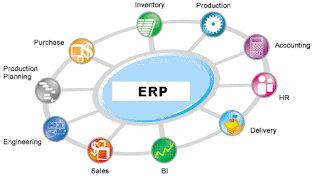
Are the trends ringing true?
Upgrade and footprint expansion activity
ERP decreased 24% in 2009 but it is expected to grow 8% per annum over the next 5 years. Based on the growth which SAP have achieved in 2010, 16% in Q2 the estimates may have been a little cautious.
Open Source
The use of Open Source Technology will continue to increase except for ERP Applications. A survey by Accenture also showed that nearly 40 percent of the 300 organisations queried planning to increase investment this year and they also planned to migrate critical operations to open source systems in the next 12 months.
Small businesses going to ERP sooner
Small Businesses will be moving to an enterprise level ERP system sooner. In 2005 the average company had at least 29 employees before adopting an ERP system; this number is expected to decrease to 18 in 2010.
Mobile ERP
Mobile ERP will grow in use and importance. With the emergence and popularity of the i-phone, i-store, and mobile applications, the next evolution in ERP will be a mobile client interface to ERP systems. SAP have merged with Sybase in order to more effectively meet the demand for mobile solutions; the wheels are in motion!
New enterprise resource functionality: energy utilisation
New enterprise resource functions going forward will require increased energy utilisation. That is there will be an even greater emphasis on ERP energy/carbon management systems. Energy management is the hot topic, driven by a pressure to meet targets and reduce taxes. Investment is being made in to energy utilisation functionality and the monitoring of it, however a survey carried out by Verdantix in the US enterprise carbon management isn’t yet an integrated business practice.
New-growth markets
New Growth Markets: Verticals. Forrester anticipates that of the seven major verticals the largest amount of ERP growth will occur in the Manufacturing sector even though the manufacturing industry is the third ranked industry in regards to overall ERP implementations.
Expanding ERP
The traditional ERP concept that we are familiar with was first introduced in 1992. Going forward traditional ERP systems will transform into what is being called EERM (External Enterprise Resource Management) which incorporates knowledge management information into your business process.
Diligent focus on ERP benefits realisation and ROI
Long gone are the days of spending like it's 1999 and hoping for the best. CIOs and COOs will continue to face pressure to prove that every dime of investment in ERP systems is justified and generates a solid return on investment.
The companies that choose the right software for their organisations, best manage business and organizational risk, implement effectively, and position themselves for benefits realisation will be better positioned headed into the recovery. This will require companies to more effectively assess vendor viability during their ERP selection processes and leverage ERP implementation best practices more than they have in the past.
No comments:
Post a Comment